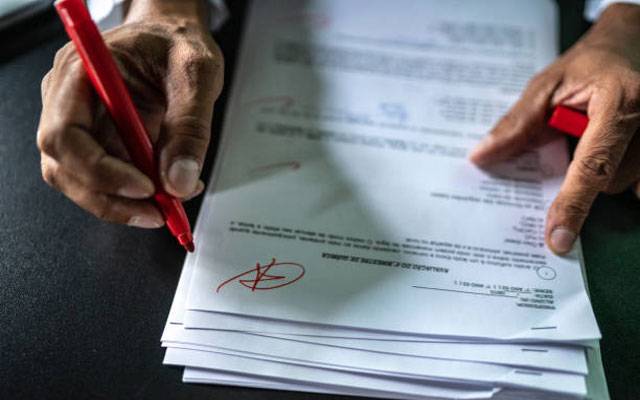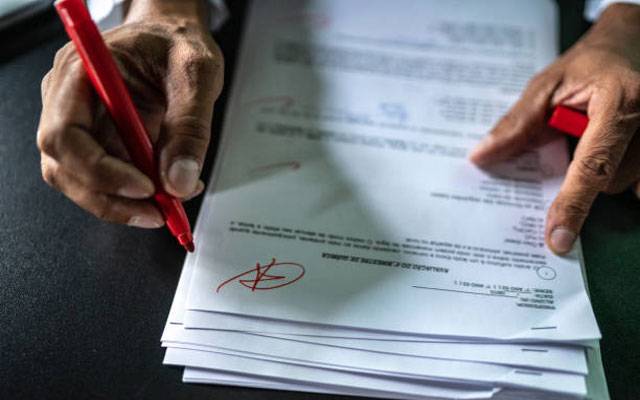

In a significant development, the Higher Education Department of Punjab has launched an official inquiry against hundreds of teachers accused of making serious errors in matric & inter paper marking. This administrative action has come after repeated failures by the involved educators to respond to official summons by inquiry committees, thereby escalating the matter to the Directorate of Public Instruction (DPI) Elementary Punjab.
This situation has raised concerns over the integrity and reliability of matric examination assessments, directly impacting the academic futures of thousands of students. According to education sector sources, this is one of the most substantial disciplinary actions in recent years involving matric paper checking irregularities.
Background of the Paper Marking Issue
The controversy stems from widespread complaints during the 2025 & inter session matric exams regarding inaccurate grading, skipped questions, and inconsistent evaluation standards. The issue came under official scrutiny when several educational boards across Punjab received appeals for rechecking and result review.
According to a departmental circular issued in early July 2025, a list of teachers involved in the flawed evaluation was compiled and submitted to the School Education Department. These educators were originally summoned on July 9 to appear before an inquiry committee, but many failed to comply with the directive.
Disciplinary Measures and Response
In response to non-compliance, the DPI Elementary Punjab has reissued summons, mandating the teachers to appear today (July 14, 2025), accompanied by a written explanation. The official notification states that failing to appear could result in serious disciplinary actions, including:
-
Suspension from future paper checking duties.
-
Official reprimand on service records.
-
Possible salary deductions or even termination in severe cases.
Educational Department’s Statement
A spokesperson for the Punjab School Education Department clarified that this action is aimed at maintaining the sanctity of the public examination system. "We are committed to ensuring fair and accurate assessment for all students. Any negligence or malpractice by examiners will not be tolerated," the spokesperson said.
Expert Opinions and Stakeholder Reactions
What Education Analysts Say
According to educational expert Prof. Asad Ali, the decision to initiate formal action is necessary. “Exam marking errors erode public trust and can have lasting consequences on students' academic records,” he commented.
Prof. Ali further emphasized the importance of rigorous training for paper checkers and suggested the department should consider implementing AI-assisted checking systems in the future to minimize human error.
Teachers’ Associations React
Teachers’ unions, however, have expressed concerns over the lack of support and clarity in paper marking guidelines. A senior member of the Punjab Teachers’ Association noted: “In many cases, the marking guidelines are ambiguous, and evaluators receive minimal training. Holding them entirely accountable without addressing systemic issues is unfair.”
Despite this, the association urged all involved educators to cooperate fully with the inquiry.
Implications of the Paper Marking Controversy
For Students
Many students are now left uncertain about the validity of their results. Some have already filed formal requests for result rechecking and reevaluation, and educational boards have reported an increase in scrutiny cases since the controversy emerged.
For Teachers
If found guilty, the involved teachers could face:
-
Permanent bans from examination duties
-
Service record entries affecting future promotions
-
Loss of bonuses or incentives tied to paper marking responsibilities
For the System
This incident has raised questions about the credibility of examination boards, highlighting the need for:
-
Better evaluator training modules
-
Standardized rubric enforcement
-
Digital monitoring of marking trends and anomalies
Long-Term Preventative Strategies
To prevent such issues from recurring, education analysts and policy advisors are recommending:
-
Centralized digital training for examiners, with mock evaluations before actual papers.
-
Introduction of automated quality control checks, where randomly selected papers are re-evaluated by a senior examiner.
-
Result auditing systems involving third-party reviews for high-risk evaluations.
-
Creating a grading transparency portal where students can see grading patterns or request automated error checks.












